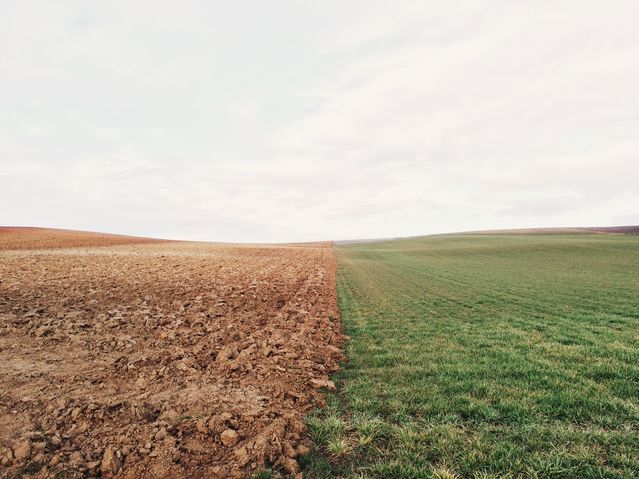Gratitude
How to Be Thankful for What We Do Not Want
4 steps for finding your well-being through recognizing hidden gifts.
Posted December 6, 2018
Good news? Bad news? Who knows?

There is an old Zen story about a farmer who finds a wild horse and his neighbors declare “How lucky you are!” The farmer responds, “Good news? Bad news? Who knows?” The next day his son is riding the horse and is tossed off. The neighbors learn of the badly injured young man and come to the farmer and say “How terrible!” The farmer responds, “Good news? Bad news? Who knows?” The next day the army passes by the farm to enlist all the healthy young men, and the farmer’s son is passed over because of his injury. “Good news? Bad news? Who knows?” And so it goes.
When I open the newspaper each day, it is always filled with things I do not want for my world. I am saddened by what feels like tragic, unnecessary deaths and chronic selfishness. If I dig deep enough or skip onto The Good News Network, I can escape into a few stories of kindness, generosity, and the best of human nature. Like the cartoon character with the devil on one shoulder and the angel on the other, I sit wondering about the current state of the world. But what if this dualistic approach to naming what is happening to me as good news or bad news is doing a disservice to my well-being and consciousness? Is there a third choice?

Our minds love shortcuts. Psychological research is filled with evidence that we are constantly and automatically making judgments to reduce threats and increase security (Estrada et al., 2018). In many cases, these quick judgments are accurate and helpful. Putting my hand on the burner is bad. Drinking a glass of water is good. But when applied to people, these quick judgments take the shape of stereotypes, which can be inaccurate and hurtful to the person being judged (Steele, 1997). Collective reflecting on the long life and public service of President George H.W. Bush (1924–2018) provides evidence that overarching judgments of a person as entirely good or bad are insufficient to describe the complexity of a life. When we apply global judgments to ourselves, and we think of ourselves as “good” or “bad” in a given situation, this can impact our well-being, happiness, and even health.
Finding the hidden gifts
Here are 4 steps we can take today to find our well-being by recognizing the gifts in whatever circumstance may be before us:
- Slow down. Automatic processing of information can be interrupted if we slow down enough to ask, “If this is not entirely good or entirely bad, what would it be?”
- Question our assumptions, or “Don’t believe everything we think.” For example, after the basic needs of shelter and food are met, greater economic prosperity is not correlated with long-term happiness (Lucas & Dyrenforth, 2006). Ask yourself, “What really brings me happiness?”
- Social comparison matters. Who we compare ourselves to can influence how happy we are with our current state of being (Thorton & Arrowood, 1966). With social media and endless marketing, there are a lot of opportunities to compare ourselves to others, sometimes leaving us feeling depressed and lonely. But we also have the power to stop that. Ask, “Why am I comparing myself to people, who am I comparing myself to, and are they relevant to who I aspire to be?”
- Don’t be too realistic. People with an attitude of optimism are not always accurate, but they are happier. Consider that one!
Accepting the hidden gifts while acknowledging the pain
The world is going to continue to send us a daily dose of events, but we can choose who we want to be in the face of those events, and how we want to respond. My current daily practice is to resist the quick judgment that this latest event is completely good or completely bad. Instead, I look for the gifts in every situation that can make me a more kind and loving person, while at the same time, not ignoring the pain and suffering that is simultaneously occurring. This practice has power.
The complexity of our times are calling us to a different, more nuanced consciousness that is beyond simple good and bad and allows for both to co-mingle. This shift enables us to be thankful and potentially grow stronger, even in the midst of pains we wish were not there.

References
Estrada, M., Eroy-Reveles, A., Matsui, J. (2018). The Influence of Affirming Kindness and Community on Broadening Participation in STEM Career Pathways. Social Issues and Policy Review, 12, 258-97. DOI 10.1111/sipr.12046
Lucas, R. E., & Dyrenforth, P. S. (2006). Does the existence of social relationships matter for subjective well-being? In K. D. Vohs & E. J. Finkel (Eds.), Self and relationships: Connecting intrapersonal and interpersonal processes (pp. 254–273). New York, NY: Guilford Press
Steele, C. M. (1997). A threat in the air. How stereotypes shape intellectual identity and performance. American Psychologist, 52(6), 613–629.
Thorton, D. & Arrowood, A. J. (1966). "Self-evaluation, self-enhancement, and the locus of social comparison". Journal of Experimental Social Psychology. 2 (2): 591–605. doi:10.1016/0022-1031(69)90049-3


